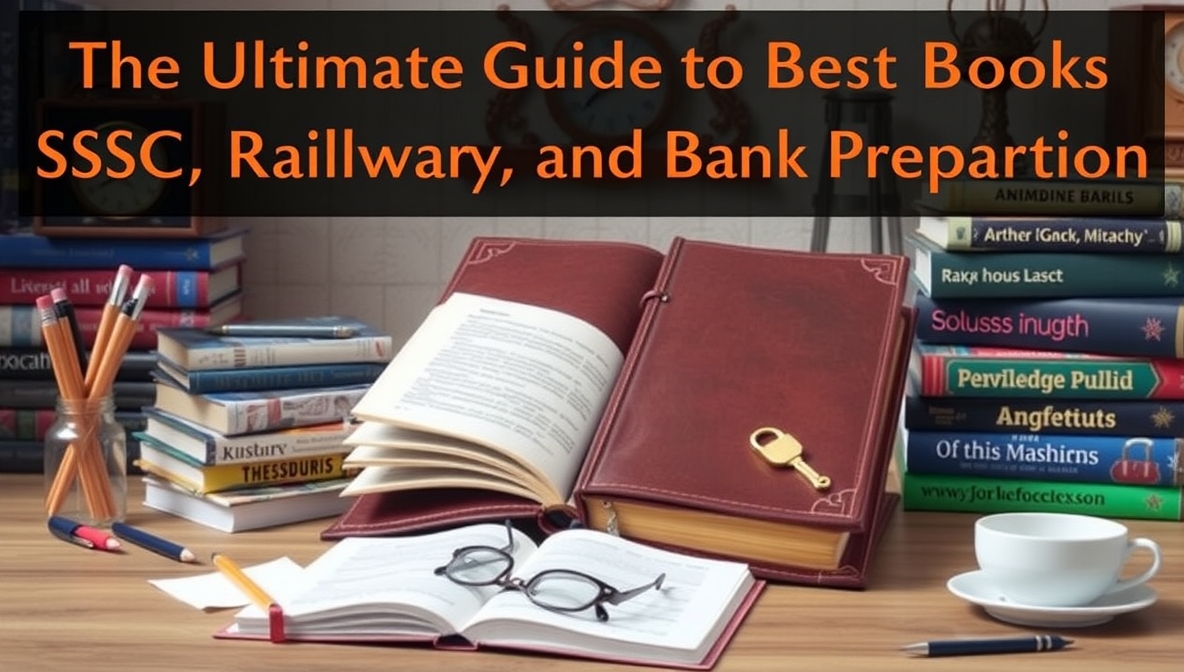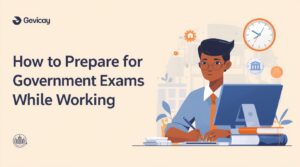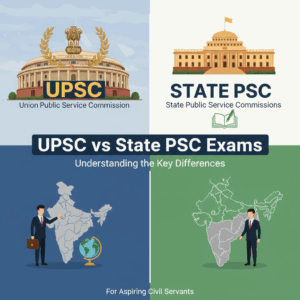Competitive examinations in India have become the gateway to secure and prestigious government positions. Among the most sought-after are the Staff Selection Commission (SSC), Railway Recruitment Board (RRB), and various Banking examinations conducted by IBPS, SBI, and RBI. With millions of aspirants competing for limited positions, having the right study materials becomes crucial for success. This comprehensive guide will help you navigate through the vast ocean of preparation books and identify the most effective resources for each subject area.
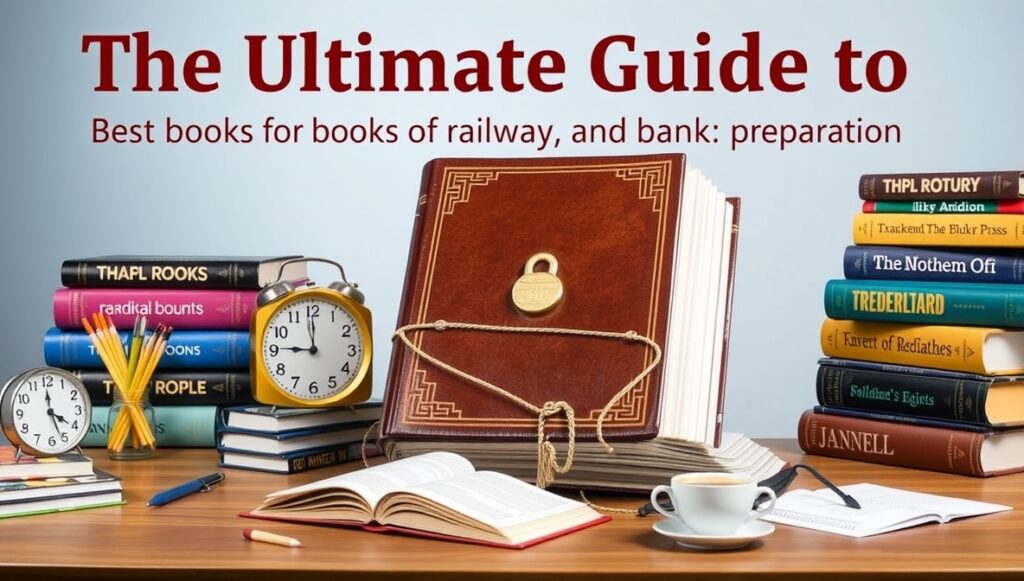
Understanding the Exam Patterns
Before diving into specific book recommendations, it’s essential to understand that SSC, Railway, and Bank exams share significant overlap in their syllabi. All three examination categories test candidates on Quantitative Aptitude, Reasoning Ability, English Language, and General Awareness. This commonality means that many preparation books can serve multiple examination purposes, making your investment in quality study materials even more valuable.
The SSC examinations, including CGL, CHSL, and MTS, emphasize a balanced approach across all subjects with particular attention to advanced mathematics and English. Railway examinations focus heavily on technical aptitude and general science alongside the standard subjects. Banking examinations, meanwhile, place greater emphasis on data interpretation, banking awareness, and financial literacy. Understanding these nuances helps in selecting books that align with specific examination requirements while building a strong foundational knowledge base.
Quantitative Aptitude: Building Mathematical Prowess
Quantitative Aptitude forms the backbone of all competitive examinations, and choosing the right books for this section can significantly impact your overall performance. The undisputed champion in this category remains “Quantitative Aptitude for Competitive Examinations” by R.S. Aggarwal. This comprehensive tome covers everything from basic arithmetic to advanced topics like trigonometry and mensuration. Its systematic approach, starting from fundamentals and progressing to complex problems, makes it ideal for beginners and advanced learners alike. The book contains thousands of practice questions with detailed solutions, helping aspirants understand not just the answer but the methodology behind solving problems.
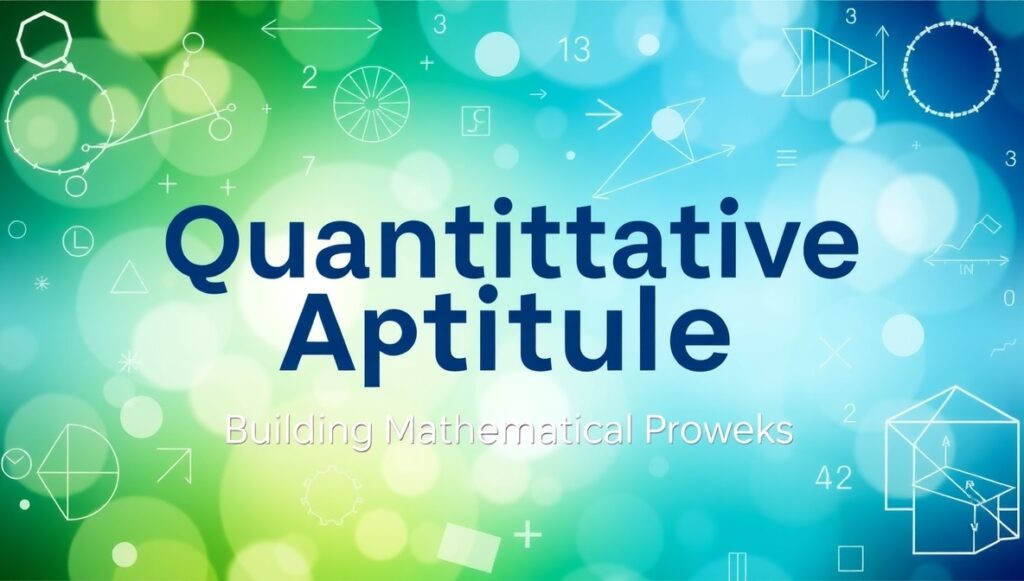
For those seeking to elevate their preparation beyond the basics, “Fast Track Objective Arithmetic” by Rajesh Verma offers an excellent complement to Aggarwal’s work. This book specializes in shortcut methods and time-saving techniques crucial for competitive examinations where speed matters as much as accuracy. The author presents multiple approaches to solving the same problem, allowing students to choose methods that work best for them. Additionally, “Quantum CAT” by Sarvesh K. Verma, though primarily designed for CAT aspirants, provides exceptional coverage of advanced quantitative concepts that frequently appear in SSC CGL Tier-2 and bank PO examinations.
For focused practice and concept reinforcement, “Arithmetic for General Competitions” by Neetu Singh has gained tremendous popularity among SSC aspirants. Her teaching methodology, which emphasizes understanding over rote learning, has helped thousands crack competitive examinations. The book excels in explaining complex concepts through simple language and real-world applications, making mathematics less intimidating for those who struggle with numbers.
Reasoning Ability: Sharpening Logical Thinking
The reasoning section tests analytical and logical thinking capabilities, skills that cannot be developed through memorization alone. “A Modern Approach to Verbal and Non-Verbal Reasoning” by R.S. Aggarwal stands as the most comprehensive resource in this domain. This book methodically covers all reasoning topics including analogies, classifications, series, coding-decoding, blood relations, direction sense, and puzzles. Each chapter begins with solved examples that demonstrate problem-solving techniques, followed by extensive practice exercises arranged in increasing order of difficulty.
M.K. Pandey’s “Analytical Reasoning” deserves special mention for its exceptional treatment of complex reasoning topics. While Aggarwal provides breadth, Pandey offers depth, particularly in areas like assumptions, arguments, and courses of action that frequently appear in banking examinations. His explanatory approach helps develop the analytical mindset necessary for tackling new and unfamiliar question patterns.
For aspirants targeting banking examinations specifically, “A New Approach to Reasoning” by B.S. Sijwali and Indu Sijwali provides excellent coverage of puzzle-based questions and seating arrangements that dominate bank PO and clerk examinations. The book’s strength lies in its systematic approach to solving complex puzzles, teaching students to organize information efficiently and draw logical conclusions methodically.
English Language: Mastering Communication Skills
English language proficiency has become increasingly important in government examinations, with sectional cutoffs often determining final selection. “Objective General English” by S.P. Bakshi remains the gold standard for comprehensive English preparation. This single volume covers grammar rules, vocabulary building, comprehension strategies, and verbal ability in remarkable detail. The book’s structured approach to grammar, presenting rules followed by extensive practice exercises, helps build strong foundational knowledge.
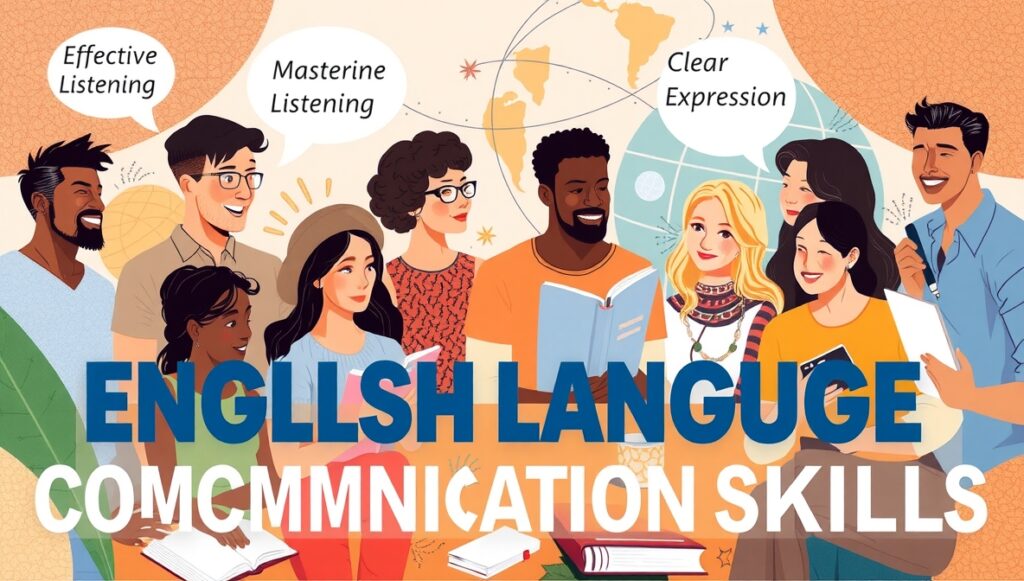
Norman Lewis’s “Word Power Made Easy” continues to be indispensable for vocabulary enhancement. Though not specifically designed for competitive examinations, its etymology-based approach to learning words ensures long-term retention. The book teaches not just individual words but word families, roots, prefixes, and suffixes, enabling students to decode unfamiliar words during examinations.
“Plinth to Paramount” by Neetu Singh offers a unique blend of basic and advanced English concepts tailored specifically for SSC examinations. The book excels in explaining complex grammatical concepts through bilingual instruction, making it particularly valuable for Hindi-medium students transitioning to English-medium examinations. Its extensive collection of previous years’ questions with detailed explanations helps aspirants understand examination patterns and question trends.
For developing reading comprehension skills, “High School English Grammar and Composition” by Wren and Martin, though traditional, provides unparalleled depth in understanding English language structure. When combined with regular newspaper reading and practice from previous years’ papers, this classic text helps develop the comprehensive language skills necessary for competitive success.
General Awareness: Staying Informed and Updated
General Awareness often becomes the differentiating factor in competitive examinations, as it cannot be solved through logical reasoning or mathematical calculations. “Lucent’s General Knowledge” has achieved legendary status among competitive examination aspirants for its comprehensive coverage of static general knowledge. The book covers history, geography, polity, economics, and general science in a concise yet thorough manner. Its question-answer format makes revision efficient and helps in quick retention of facts.
For current affairs, which constitute a significant portion of general awareness sections, monthly magazines like Pratiyogita Darpan, Competition Success Review, or Banking Services Chronicle provide comprehensive coverage of national and international events. However, these should be supplemented with daily newspaper reading, particularly The Hindu or Indian Express, which provide analytical coverage of important issues.
“General Knowledge Manual” by Pearson offers an excellent alternative to Lucent’s, with more detailed coverage of certain topics and better organization of information. The book includes numerous tables, charts, and infographics that aid in visual learning and quick revision. For banking-specific preparation, “Banking Awareness” by Arihant Publications provides focused coverage of banking terminology, financial institutions, monetary policies, and recent developments in the banking sector.
Manorama Yearbook, published annually, serves as an excellent resource for year-round current affairs and statistical data. Its comprehensive coverage of government schemes, awards, appointments, and international affairs makes it particularly valuable for the months leading up to examinations.
Specialized Books for Specific Examinations
While the books mentioned above form the core of preparation, certain examinations require specialized resources. For SSC CGL Tier-2, “SSC Mathematics Chapter-wise Solved Papers” by Kiran Publications provides extensive practice with previous years’ questions arranged topically. This allows focused practice on weak areas while understanding the examination’s evolution over time.

Railway examinations often include technical sections requiring books like “Railway Technical and Non-Technical” by R. Gupta, which covers railway-specific general knowledge, technical concepts, and operational aspects of Indian Railways. For RRB NTPC, “Guide to RRB Non-Technical Recruitment Examination” by Disha Publications offers comprehensive coverage tailored to examination requirements.
Banking aspirants should consider “Comprehensive Guide to SBI Bank PO Preliminary and Main Exam” by Disha Publications for SBI-specific preparation and “Computer Knowledge for Banking and Government Exams” by Shikha Agarwal for the increasingly important computer awareness section.
Creating an Effective Study Strategy
Having the right books is only half the battle won; knowing how to use them effectively determines success. Begin with one comprehensive book per subject to build foundational knowledge before moving to specialized resources. Avoid the temptation of accumulating multiple books for the same subject, as this often leads to confusion and incomplete preparation.
Create a study schedule that allocates time proportionally based on examination weightage and personal strengths. Typically, Quantitative Aptitude and Reasoning require daily practice, while General Awareness benefits from consistent but shorter study sessions. English preparation should combine rule-based learning with extensive reading and application.
Regular revision remains crucial for long-term retention. Maintain handwritten notes of important formulas, concepts, and current affairs that can be quickly revised before examinations. Practice with previous years’ question papers and mock tests to understand time management and identify areas requiring additional focus.
Conclusion
Success in SSC, Railway, and Banking examinations requires dedication, strategic preparation, and most importantly, the right study materials. The books recommended in this guide have proven their effectiveness through the success of millions of aspirants over the years. However, remember that books are tools; their effectiveness depends on how diligently and consistently you use them.
Start with basic books to build strong foundations, gradually progressing to advanced materials as your understanding deepens. Supplement book learning with online resources, video lectures, and mock tests for comprehensive preparation. Stay updated with current affairs through newspapers and magazines, as this often becomes the differentiating factor in final selection.
The journey of competitive examination preparation is demanding but rewarding. With the right books as your companions, consistent effort, and strategic preparation, success in SSC, Railway, and Banking examinations becomes not just possible but probable. Choose your resources wisely, commit to regular study, and maintain unwavering focus on your goal. The secure and prestigious career that awaits successful candidates makes every hour of preparation worthwhile.
